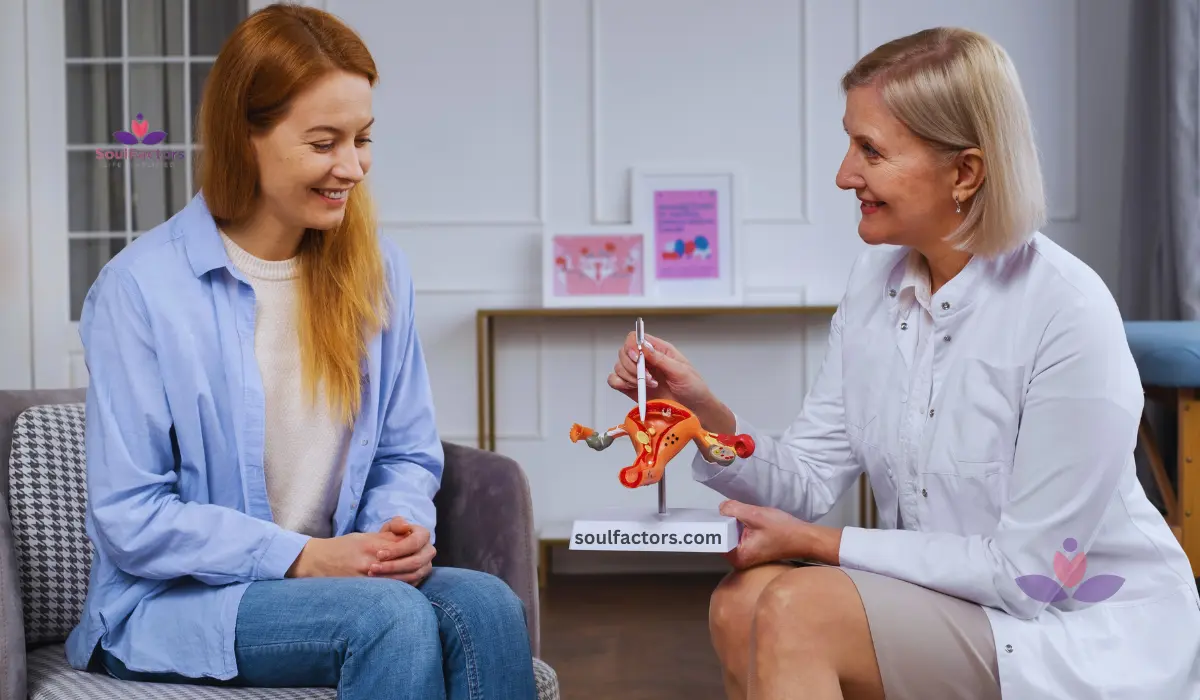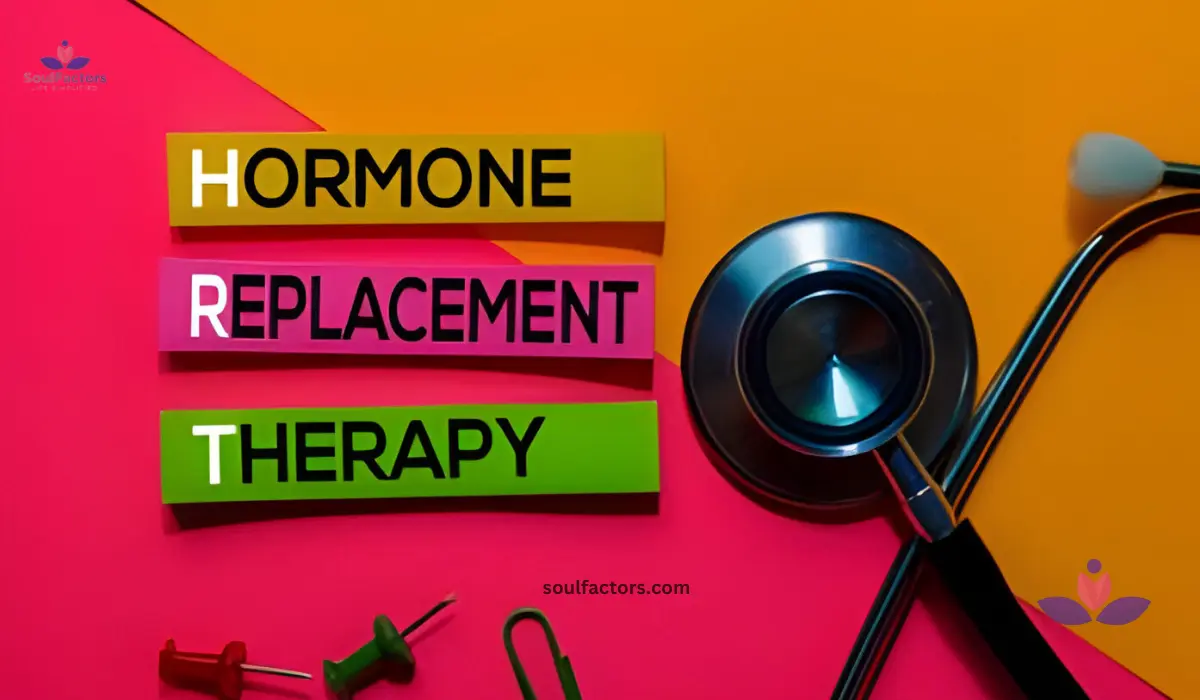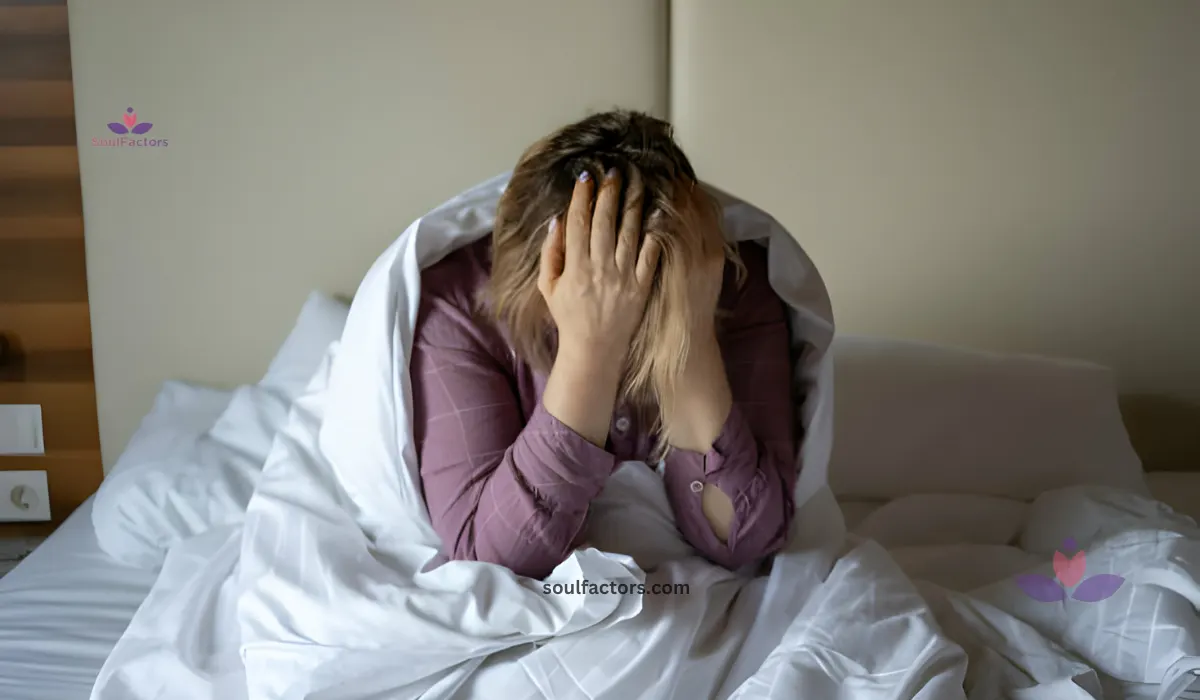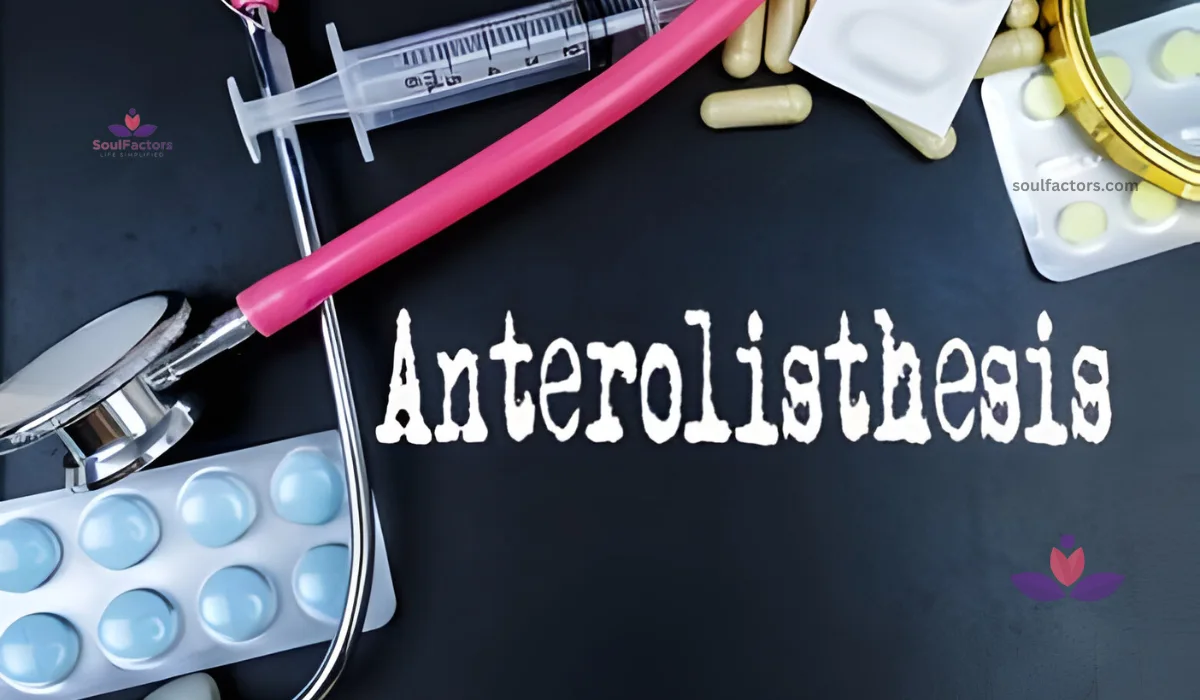Can Hormone Therapy Cure Menopausal Depression?
Weigh in on the benefits and risks of getting hormone therapy after menopause.
On Mar 21, 2024 – 5 minutes read

Menopause brings physical changes like hot flashes and night sweats as estrogen levels decline. But mental health ramifications like anxiety, irritability, and depression often accompany this transition too. With depression striking 1 in 4 menopausal women, safe, effective treatment proves vital. This raises an intriguing question – Does hormone replacement therapy help with menopause & depression? Beyond relieving hot flashes, might balanced estrogen levels lift mood and ease anxiety as well?
In this article, learn the facts about hormone therapy for perimenopausal and menopausal women. Discover multiple estrogen administration methods, which women make suitable candidates, plus risks versus mental health benefits. Let’s analyze the science to uncover whether strategically balanced hormones hold promise for weathering menopause mentally as well as physically.
What is Hormone Therapy?

Before explaining – Does hormone replacement therapy help with menopause & depression? let’s understand what hormone therapy is. Hormone therapy aims to supplement depleted hormones like estrogen that fluctuate dramatically during perimenopause and menopause. Estrogen delivered through skin patches, creams/gels or pill supplements may help stabilize sleep, mood, cognition, and more as women transition.
However, traditional hormone therapy only treats estrogen deficiency. More advanced versions also supplement progesterone, which can provide broader health protection. Finding your optimal hormone balance regulates physical and mental well-being.
How is Hormone Therapy Administered?
Hormone therapy dosage and delivery method depend on your symptoms and health profile. Estrogen alone or combined estrogen/progesterone therapy is prescribed in multiple formats:
- Oral tablets like PremPro, a common combined pill containing estrogen and progesterone. Tablets offer standardized doses but passing through your digestive system may increase stroke risk.
- Estrogen skin patches like Climara provide steady hormones directly into the bloodstream. However, patches can provoke skin reactions at application sites in some women.
- Topical estrogen creams or progesterone suppositories also avoid digestive passage while treating genitourinary issues. However, doses are absorbed inconsistently.
- Pellet implants injected under the skin supply sustained estrogen for 3-6 months but require a doctor to insert/remove them.
While determining Does hormone replacement therapy help with menopause & depression? It is also important to discuss the administration methods plus your health history with your healthcare provider to help determine the optimal hormone therapy approach for you
Who Can Benefit From Hormone Therapy?
Healthy women under the age of 60 within 10 years of menopause onset typically make good hormone therapy candidates provided they lack contraindications. Those with the below conditions should avoid HRT due to higher complication likelihood:
– History of blood clots, heart attack or stroke
– Hormone-influenced cancers like breast cancer
– Liver disease
Otherwise, women struggling with severe hot flashes, night sweats, vaginal dryness, or associated mood disorders stand to benefit greatly from properly administered HRT. Now that we know, what HRT is, how it is administered, and what makes you a good candidate for HRT, let’s answer the pressing question – does hormone replacement therapy help with menopause & depression?
Does Hormone Replacement Therapy Help with Menopause Depression?

Interestingly, research suggests stabilizing seesawing estrogen via HRT also alleviates low mood and anxiety during the menopause transition for many women.
One study found depression scores decreased 50-70% in menopausal women on estrogen therapy versus placebo. Hormone stabilization also curbs insomnia and creativity loss tied to depression. The sharp drop in estrogen rather than chronically low levels seems the primary culprit. Thus, it can be concluded that hormone replacement therapy could ease depression around menopause.
However, risks mean extended therapy beyond a year proves controversial. Still, short-term hormone therapy shows promise for safely managing menopause mood complications. Addressing the root hormonal triggers makes it possible to alleviate mental health struggles until natural hormone levels rebalance after menopause concludes.
Treating concurrently with antidepressants, therapy, nutrition, and exercise works best long-term. But strategically timed HRT offers hope for surviving the transition depression-free.
What are the Risks of Hormone Therapy?
We have answered – does hormone replacement therapy help with menopause & depression? However, hormone therapy is not devoid of risks. Estrogen HRT mitigates troublesome menopause symptoms effectively for most women short term. However, elevated risks like blood clots, heart disease, and breast cancer manifest more prominently if continuing long-term (over 5 years).
However, combining progesterone with estrogen balances cells to help counteract these increased health threats. Progestin also protects uterine health, reducing cancer risk. Carefully weighting duration of use, age, family history, and personal risk tolerance with your doctor ensures safe hormone therapy treatment.
Conclusion
Menopause sparks countless changes sure to challenge even the most resilient women both physically and mentally. With depression striking 1 in 4 during this vulnerable transition time, finding effective relief is essential and that raises the question – does hormone replacement therapy help with menopause & depression?
The good news is research reveals balancing seesawing estrogen levels through short-term hormone replacement therapy appears effective for treating menopausal depression in many cases.
Studies demonstrate supplemental estrogen provided via patches, creams, or oral delivery can decrease anxiety and depressed mood in women struggling during menopause’s hormonal rollercoaster. Adding progesterone to regulate estrogen’s cell effects provides wider health protection as well.
However, increased health risks from sustained years-long therapy mean treating depression through additional antidepressants, therapy, lifestyle changes, and social support works best long term. Careful cost-benefit analysis with your doctor helps navigate safely personalizing duration and delivery approach.
Still, strategically timed hormone therapy proves useful in that it addresses the very root hormonal causes of menopausal depression. Stabilizing estrogen levels can help women make it through the challenging transitional years until natural balance gracefully resumes post-menopause

Subscribe to Newsletter
Elevate your routine, stay on trend, and embrace a personalized beauty journey with our curated insights.





Write a Comment